|
A reader of my latest novel, “The Bastard Gods” made a comment about a word I used. The reader said the word “savage” was offensive. This was news to me, so I decided to look it up on Dictionary.com. Here’s what I found: Savage [ sav-ij ] 1. fierce, ferocious, or cruel; untamed: savage beasts. 2. Offensive. (in historical use) relating to or being a preliterate people or society regarded as uncivilized or primitive: savage tribes. 3. enraged or furiously angry, as a person. 4. unpolished; rude: savage manners. 5. wild or rugged, as country or scenery: savage wilderness. 6. Archaic. uncultivated; growing wild. There it is, definition number 2. According to Dictionary.com the word savage has officially been declared, deemed, labeled, and designated as offensive. So what does that mean? Offensive [ uh-fen-siv or, for 4, 5, aw-fen-, of-en- ] adjective 1. causing resentful displeasure; highly irritating, angering, or annoying: offensive television commercials. 2. unpleasant or disagreeable to the sense: an offensive odor. 3. repugnant to the moral sense, good taste, or the like; insulting: an offensive remark; an offensive joke. 4. pertaining to offense or attack: the offensive movements of their troops. noun 1. the position or attitude of aggression or attack: to take the offensive. 2. an aggressive movement or attack: a carefully planned…offensive. I suppose that means “savage,” in the context of use in my novel, is repugnant in a moral sense. Well, good. It’s supposed to be. The characters who utter the word use it in its full repugnant glory. These fictional characters negatively describe cultures and peoples they believe are primitive and beneath them. They are complex, flawed and sometime very nasty characters, and the word is appropriately used for the situation. Pray tell, what word would they use if not “savage”? There was a time when the dictionary didn’t pass judgement on words, it merely explained them. When did Dictionary.com take it upon themselves to start making value judgements on words? In fact, that’s exactly what this article from Dictionary.com does. Here’s an excerpt from the article’s opening, “…It’s very important to be mindful of words that were originally or historically used in very offensive ways. Here’s a list of words with hurtful histories that may have you thinking twice about your word choice.” What the author of this article fails to mention is most people have no clue what the ancient origins of these words are, only their modern (and benign) meaning. They weren’t considered offensive until someone went out of their way to make them offensive. Time is considered the Great Healer, and time has healed these words and phrases, making them palatable and useful. They now have different contexts which enhance and enrich the literary landscape. Their dark origins were lost and now irrelevant. What Dictionary.com has done has intentionally poisoned them. ANY word could be considered offensive, it merely takes the right situation, context, perception, and someone to complain loud enough. If you dig deep enough into the etymology of any word, you’re likely to find negative context in its past use or origin. How does the process work? Do the Offended take their petition before some kind of Word Tribunal, where the anxious and entitled wring their hands and tremble at each utterance of an abominable word? What power they must feel when they strike down each word and phrase! There is no power greater in the modern world than that of the Offended. In the past, if one did not agree with a word, a thought or a book, one merely didn’t read it. Now it must be labeled and targeted for deletion. “But they aren’t banning the word, they are just labeling it as offensive,” you say. You’re right, they aren’t banning it. They are cancelling it, which is worse. If an organization like Dictionary.com publicly stated they were banning a word, there would be an outcry. No, they merely stained it. That’s all it takes these days. Every writer who submits a book to an editor will have their word choices questioned at best, stricken at worst. No publisher wants to get labelled as racist or “-phobic.” They don’t want hordes of Twitter denizens calling for boycotts or even worse. Platforms like Amazon will de-platform. It’s not worth it. Just go along and get along, and everything will be alright. Editors will push back and writers will self-censor. We’ve seen it before. It’s brilliant, really. If you try to ban a book, legions of activists from the right and left will descend upon you. No one bats an eyelash these days when you ban a word. It’s actually better than book banning. Words matter because words are the basic building blocks of thoughts. Words are the computer code of the sentient mind. Delete words, delete thoughts. One still has freedom of speech, but less words with which to do it. Oh, you can still theoretically use offensive words, but you will suffer the consequences. What kind of consequences? Cancellation. We’ll cancel your job, we’ll cancel your book, cancel your show, cancel your reputation. We’ll dox you, de-platform you, marginalize you and perhaps threaten violence. We’ll do whatever it takes to get you to shut up. Don’t use the words if you know what’s good for you. That’s not political or intellectual discourse, that’s a threat. Actually, no, that’s not entirely accurate. It’s only a threat until it is acted upon, then it becomes an attack. Don’t believe me? Go back and look at the definition of offensive, but this time as a noun: 1. the position or attitude of aggression or attack: to take the offensive. 2. an aggressive movement or attack: a carefully planned…offensive. Labeling, cancelling, deleting, banning, doxing, marginalizing…these are modes of intellectual warfare and on my list of offensive words. When words and phrases, and those who write or utter them, are destroyed under the guise of “offense,” it is a war on thought itself. Such behavior breaks the spirit of the 1st Amendment, if not always the letter. Labeling, cancelling, deleting, banning, doxing, marginalizing…these are repugnant things in the moral sense, abhorrent to good taste; insulting. Offensive. They are savage, as are those who practice them. #savage #Labeling #cancel #cancelling #cancelculture #deleting #banning #ban #doxing #dox #marginalizing #marginalize #bookburning #davechappelle #censorship #censor #snowflake #NPC #politicallycorrect 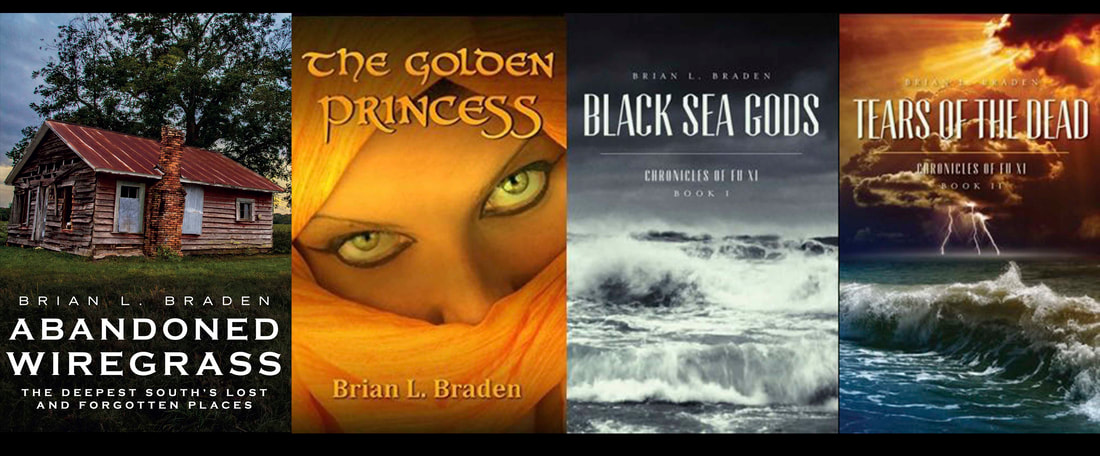 *** Disclaimer: All opinions expressed here are strictly my own personal views. If you enjoyed this blog, please like the post and leave a comment or if you're feeling brave, share it on social media. This platform is my entire advertising budget and is how I share the word on my books. Also visit my Facebook, my author page and check out my photography book from America Through Time, "Abandoned Wiregrass: The Deepest South's Lost and Forgotten Places." I've just returned from several days in seclusion in the Smokey Mountains. My express purpose was to jump start Book IV in the Chronicles of Fu Xi . In that aspect, my mission was successful. The manuscript is now 30,000 words long, and the writing is coming easy. I could have written more, but I hiked and I slept and I might have had a few adult beverages, too. Like I said, mission accomplished. On the way up there and back I listened to Ready Player Two on audiobook. I must say, I was disappointed. Earnest Cline was an amazing writer, and Ready Player One was a masterpiece. I think he got lost on his second novel. By "lost", I mean "Woke." He pretty much emasculated his main character, giving more story time to a diverse set of secondary characters, who occasionally spouted the required Woke mantras scattered conspicuously about the plot to let the reader know the author "gets it". It detracted from the plot, and didn't jive with how the characters spoke or acted in the first book. When the characters started attack Lord of the Rings because it lacked "representation", I'd had enough. You don't go after LOTR on one page and then exploit it to carry your crappy plot on the next page. Here's one, quit riding the skirts of the genius creators of the last half century, while simultaneously disparaging their work. Come up with something out of whole cloth and move on. Everything Woke turns to shit, especially literature. Woke is an extinction-level event of the mind. On a happier note, I started a new book on recommendation from my wife - "Eleanor Oliphant Is Completely Fine" by Cathleen McCarron. So far, so good. I'll let you know how it turns out. On the side I'm working on two stand-alone manuscripts. One takes place during the 90s and is about of Vietnam War vets looking to recapture the glory of their youth. The other is literary fiction set in South Alabama in present times. I don't like Southern literary fiction, because it's depressing, pretentious, focuses on the worst aspects of the South, and seems to play up to every stereotype Yankees have about the South. I want to write a southern literary fiction novel that reflects the south I see and live in now. I want to write about real people facing real struggles. Oh, and aliens. There has to be aliens in the book. It can still be literary fiction with aliens in it, right? Literary aliens. Day job has been busy, and been eating into my writing time. That's life. Gotta put food on the table and a roof over my kids heads. Still waiting for those breakthrough book sales so I can quit my job (Any day now). Regardless, it just means I'm going to have to get more efficient with my writing time. With that said, Photography Phridays is going away. I don't have time to blog twice a week. I'll keep showcasing my photography, but from time to time on the Monday edition. I'm looking forward to a speaking engagement tomorrow at a local book club. I'll let you all know how that goes next week. That's all for now, see you next week. And now a photo that has nothing to do with anything I just wrote about, but I took it on my vacation and its cool. ***
If you enjoyed this blog, please like the post and leave a comment or if you're feeling brave, share it on social media. This platform is my entire advertising budget and is how I share the word on my books. Also visit my Facebook, my author page and check out my photography book from America Through Time, "Abandoned Wiregrass: The Deepest South's Lost and Forgotten Places." Halloween is quickly approaching, and today is Part 2 of a short story from my compendium "The Illusion Exotic". I'll run an installment each day leading up to Halloween. If you missed Part 1, you can catch up here. THE CAVE, Part 2 A former Civil War soldier embarks on a quest on behalf of his former commander. He expects to find outlaws and gunslingers in the high deserts of New Mexico, but instead stumbles upon death incarnate. "The Cave", & "The Illusion Exotic, "Copyright 2016 Brian L. Braden The horse drank by the mountain stream while Knight slept in the saddle. Late afternoon sunlight danced off the last of the cold snowmelt. Soon, the first snows would seal the mountains to the north and east, barring his way back to Colorado. It didn’t matter; he wasn’t coming back this way until next summer. For now, however, the only thing falling was the leaves from the cottonwoods and aspens. A breath of cool, dry mountain air woke him. He looked up and around. The sun shines harder here. Mountains capped with strips of old snow stood boldly against the pale blue sky in the west and north. Knight gently spurred his horse. They ambled down the mountain, following the golden trail of cottonwoods into the fertile Chama Valley. The setting sun blazed orange as he entered Espanola, a collection of low adobe huts, shacks, and tents. Children played in the dusty haze kicked up by wagons packed with railroad workers. Zuni Indian women sat cross-legged against southern facing walls. Wrapped in brightly colored blankets, their shadows lay crisp on white adobe. He found himself before a two-story adobe inn across from an old mission. A Mexican boy gladly accepted a U.S. nickel to feed and care for his horse. Outside the inn, several squat Zuni women in long dresses tended two hornos, adobe ovens. They took loaves of fresh bread, tortillas and steaming goat meat into the main kitchen though a side door. He stepped out of the cooling twilight into a warm main chamber packed with men crowded along several long tables. White men and Mexicans hunched over their mugs, eating with barely a word. Except for a crackling fire in the corner, an odd silence hung over the tavern. Knight made his way to an open bench. A plump indian girl ran a wet rag across the rough table in front of him. “You are not a worker,” she said matter-of-factly. “No, but my money is good. Now bring me something to eat.” She eyed him suspiciously and hurried off to the kitchen. Around the room, hardened gazes assessed Knight before going back to their business. After a few minutes, a sweaty man emerged from the kitchen, nervously wiping his hands on a dirty apron. “Señor Knight? Are you Señor Knight from the railroad?” Knight stood, towering above the elderly man with the refined Spanish accent. With bloodshot eyes, the Spaniard’s shoulders slumped as if under some invisible weight. Knight extended his hand. “I take it you are Señor Amado Lucero?” The Spaniard offered a weak smile and unsteady handshake. “Welcome to my establishment! Please, sit. Isobella, get our guest some warm bread and tequila. Please, sit my friend.” “Thank you.” Knight tipped his hat and sat back down. Patrons eyed Knight with renewed interest, perhaps wondering who merited Amado’s finest hospitality. “Isobella will take care of you,” Amado motioned to the plump indian girl. “I must tend to the kitchens. Once my patrons depart, if you are not too exhausted from your journey, we will discuss business. My daughter is preparing a room for you even now.” “Thank you kindly. General Palmer spoke highly of you and your dear family.” Amado winced, then smiled tightly and nodded. He curtly begged Knight’s pardon and disappeared into the kitchen. In a few minutes, Isobella placed a steaming plate of corn tortillas and shredded goat meat before him. The green and red chili spices didn’t sit too well with Knight’s bland Protestant palate, but it was hot with ample cool water to wash it down. Anyway, mountain air made a man plain hungry. He ate as quickly as the spicy food permitted, all the while observing the room around him. As the sun set outside, the fire cast long shadows across the mud walls and danced off the low-slung ceiling beams. Hard men, exhausted from their day’s labors, sat in near silence. They nursed whiskey or warm beer, but lacked spirit. More men streamed in, but few left. Soon, the serving girls lit lamps, banishing the shadows to the corners. Knight wiped his mouth and washed down the last of his meal. He’d seen this before. When men gather in fear, they are either overly boisterous or deathly quiet. Men are loud in the face of dangers they understand, but fall silent in the shadow of the unknown. He beckoned Isobella. “Bring me a whisky. I’ll take it on the porch. Tell Señor Amado he can meet me there when his business is complete.” Stares followed him as he departed. Knight stepped onto the front porch and leaned up against a post. He breathed in deeply, letting the night fill his lungs. A man could live on air this sweet. He struck a match, lit a freshly rolled Carolina tobacco cigarette and watched the blue smoke waft into the starry night. For a brief moment, he caught a whiff of something sickly sweet, but it vanished quickly on the breeze. Knight turned, and experienced the disturbingly rare sensation of being surprised. Dark almond eyes studied him intently from the edge of the porch. Never taking her gaze off of him, she emerged into the ruddy light. Stray tendrils of midnight hair, untouched by grey, escaped a bun and fell across perfect olive skin. She wore a kitchen apron over a blue velvet dress common for ladies in these parts. A brilliant turquoise crucifix on a silver necklace hung from her graceful neck. He cleared his throat and tipped his hat. “Ma’am. I didn’t mean to disturb you, I thought I was alone.” She slid onto the porch uncomfortably close to Knight, never releasing him from her stare. Her expression overflowed with goodness and sadness and a life fully lived. Finally, as if pitying Knight, she released him from her gaze and stared into the night. So this is the Spanish Lady. Along his journey the railway workers spoke reverently of the beautiful enchantress, a lady of noble Spanish blood who gave her heart to a lowly commoner, a simple innkeeper. For her, they fondly named this settlement Espanola. Even in a kitchen apron, her beauty surpassed any woman he’d ever seen, seemingly lighting the darkness around her. She finally spoke in a voice of satin and honey, “We came here when I was only a little girl. My father told me this place held old magic, a kind of magic the Church did not want to acknowledge. It’s old and pagan, as beautiful and terrible as a summer monsoon over the mesa. It’s in the air and you drink it like wine. I see it in the stars and in the sunrise over the mountains. When my father arranged my betrothal to a gentleman from Toledo, I pleaded with him not to separate me from this beautiful, enchanted land. I draw my strength from it, and fear I would wither if gone too long. I think this is why I married my dear Amado.” She smiled and drifted to a different place and time. Knight had seen hell so many times that a glimpse of grace stole his breath. Her voice poured over his soul like a spring Baptism, washing away a lifetime of blood and gunsmoke. Silas would have gladly spent the rest of his life in this moment, willingly trapped in the Spanish Lady’s power. He would do anything for her, she need only ask. She turned again to look upon Knight, but he could not hold her gaze. He looked down at his boots as the moment passed. “Forgive me, I have been working too long in the hot kitchens. Sometimes I get carried away. We are most grateful you arrived here safely. I am Josefita, Amado’s wife. Our daughter has prepared our finest room for your stay.” Finding his senses, Knight nodded and removed his hat. He searched for the right words and briefly thought about how her apron was strangely clean and white for someone working in the kitchens all day. He cleared his throat. “Of course, Señorita. General Palmer spoke glowingly of the hospitality of the house of Lucero. He sends his regards.” “I wish we could accommodate an agent of the railroad with a more gracious reception, but we have many mouths to feed. If Amado can be of any service, please do not hesitate to ask.” “Ahm...uh, yes ma’am. I most certainly will.” Suddenly, she stepped even closer to him and placed a hand on his arm. The coolness of her touch took him aback; the intensity shining from her face bewitched him yet again. “Dark tidings have befallen us. I don’t know what General Palmer told you before you came here, but what stirs in this valley is ancient sin brought to life. I know you are an earthly man, but you possess the gift to see what is unseen.” Her eyes bore deeper into him. “I fear you will need that gift... more than even fire and steel,” she whispered. Then, without another word, she turned and vanished around the corner. For a moment, he caught the sickly sweet odor yet again. Clouds now covered the stars as the night turned pitch black. A few ruddy lanterns spilled feeble puddles of light onto the dusty street. Alone again, he leaned against a post and blew out a long breath. (to be continued tomorrow) Read Part 1 here. 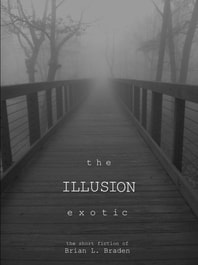 I hope you enjoyed this installment of THE CAVE. It will continue tomorrow on The Illusion Exotic and conclude on Halloween! Can't wait to find out what happens? You can get The Illusion Exotic here, featuring The Cave and other short stories. #shortstory #horror #halloween #spooky #western #serial *** If you enjoyed this blog, please like the post and leave a comment or if you're feeling brave, share it on social media. This platform is my entire advertising budget and is how I share the word on my books. Also visit my Facebook, my author page and check out my photography book from America Through Time, "Abandoned Wiregrass: The Deepest South's Lost and Forgotten Places." A former Civil War soldier embarks on a quest on behalf of his former commander. He expects to find outlaws and gunslingers in the high deserts of New Mexico, but instead stumbles upon death incarnate in "The Cave." The Cave is one of six short stories in my book "The Illusion Exotic." Here is a small sample, I hope you enjoy it. *** “It’s there, in the cliff face on the east side of the river.” Townsend pointed down to a sharp bend in the river about half a mile north of their vantage point on the cliff. Knight lowered his hat against the naked sun and followed Townsend’s finger to an overhang in the opposite cliff. There, the river had carved out a hollow in the soft yellow clay. In the stark midday shadows, he couldn’t be sure how far it penetrated the cliff. With monsoon season nearly over and the Brazos Mountains snow pack almost gone, the Chama shriveled to a trickle. The challenge would be finding a way down the cliff to the streambed. “I see it. How do we get down there?” “The cliff descends in another mile north.” “Something is moving down there, just south of the cave,” Knight pointed to a dark speck trotting out from the cave’s shadow. Townsend shielded his eyes from the sun and sat higher in the saddle, wiping sweat from his brow every few minutes. “That there’s a cay-yote-aye, maybe a mangy wolf. Hard to tell from here, I didn’t see any sign of a...” Townsend jumped in his saddle as Knight’s Colt thundered inches from his ear. “SON OF A BITCH! I’m gonna be deaf in that ear for a week, you...” Ignoring Townsend, Knight calmly replaced the revolver in his holster, and rode through the blue smoke. Townsend rubbed his ringing ear and looked where Knight shot. Far below, the animal lay motionless on the riverbank. “It had something in its mouth. I want to see it.” “Jesus Christ,” he mumbled and spurred his horse after Knight. As Townsend promised, the cliff soon descended to the sandy streambed. Knight stopped just short of the river and trotted back and forth, looking intently at the ground as Townsend caught up. “Hell of a shot back there. Musta been three hundred yards. Never saw a revolver shot like...” “What’s east of here?” Knight interrupted, pointing to a wisp of black smoke on the horizon. “That’s Foreman McGhee’s railhead camp, maybe four miles. The line stays north of the river until it enters the mountains.” Townsend took off his hat and wiped his head with a rag. “Looks like ole’ McGhee’s making good progress all things considered.” “Answer me this, and answer carefully.” Knight turned and directed his gaze squarely on Townsend. “Have you told anyone what Amado spoke of last night? Does anyone in town, other than you and Amado know of this place?” Townsend shook his head. “Only the kid from the pueblo and Father Garza.” “I ain’t worried about the boy. If what Amado told me is true, there isn’t a red skin alive who’ll come near this place.” Knight galloped about fifty yards downstream and halted, studying the sandy bank. Warily, Townsend trailed a few yards behind. Knight suddenly wheeled about, pulled his gun and pointed it squarely at Townsend. “The boy, did he accompany you and Amado back to the cave?” Townsend slowly raised his hands. “Hey, I ain’t done nothing to you or any of those poor souls!” Knight cocked the hammer. “Answer my question.” “No, he was too afraid. Stayed upstream ‘til we came back fer him.” “Father Garza...when did he leave you and Amado and head back to the Espanola?” Knight asked. Townsend looked confused. “I don’t understand.” “It’s important you answer my question, Mr. Townsend. Otherwise, it’s going to go bad for you.” “Last night, neither of you told me what happened after you found the cave. Tell me what happened to Father Garza after you left the cave.” Sweat poured down Townsend’s face. “He took the boy north, to the pueblo. Don’t rightly know what became of them since. I suspect Garza made his way back to San Marcos.” “And Wellsby?” “He went back with us, I know Amado told you as much.” “We’ll see. Turn around and ride north ahead of me.” “Are you gunna tell me what the hell’s going on? I ain’t done wrong by you or anyone.” “Maybe,” Knight replied casually from behind. “There’s what you tell me and what the tracks tell me. I’ll find out soon enough who’s telling the truth.” They rode several hundred yards north toward the distant railhead, until the terrain flattened and sand gave way to scrub and thistle. He commanded Townsend to stop, but stay on the horse. “Keep your hands were I can see them.” Knight dismounted and walked through the scrub, once again studying the ground, Colt always pointed in Townsend’s general direction. He bent down and examined the dirt. “Wellsby vanished, just like that?” Knight inquired. “It ain’t no damn different than like we told you,” frustration rising in the sheriff’s tone. “We got back just before dark. Wellsby told us to keep quiet and he was gunna wire back to Colorado Springs what we found. He never met us the next morning, like he said he would. Ain’t seen him since. Amado said we should keep quiet until you showed up. That’s the truth, I swear. Hey, if we were lying, why would I bring you up here?” Knight remounted his horse. “Because this would be a good place to dump the body of an agent of the Denver and Rio Grande Railroad. Now, turn your horse around and ride back to the river.” Townsend spit. “You planning on killing me?” “Should I?” They returned to where the cliffs enclosed both sides of the river. The horses splashed up to their hooves in the muddy water as they rounded the bend and the cave came into view. “Dismount,” Knight ordered. The railroad agent dismounted and cut an “X” in the sand with his boot heel next to the stream. “Stand here. Don’t move until I see if what you and Amado told me is true. Most of what you said lines up with the tracks going in and out of this canyon. If I see tracks newer than two weeks old coming from the south, I’ll know someone lied. And if I don’t find what you described in the cave, I’ll still know someone lied.” “We weren’t lying, Knight.” “We’ll see. If you move off that ‘X’ I’ll kill you before you mount your horse, understand? Even if my back is turned, I’ll still hear you. And if I can’t hear you, I’ll smell you. If I find what I should in there, then me and you, we’re okay.” Townsend remained silent as he tied his horse to a piece of scrub and stood on the X. “Ain’t you gunna take my gun?” “If I thought you knew how to use it, I would.” Townsend’s cheeks turned red. He jerked his hat low and crossed his arms with a huff. Knight tied off his horse and crossed the sluggish current, barely getting his boots wet in the process. As he walked down the canyon the cliffs rose higher and the breeze abandoned him to the New Mexico sun. Overhead, buzzards dragged their shadows over the creature lying next to the stream bed. It turned out to be a mangy coyote with a mottled coat and sore-covered skin. Jutting ribs and bulging eyes spoke of a creature already dying of hunger. A human femur, partially covered with dried flesh, lay beside its head. He nudged it with his boot, revealing blood-soaked sand under its chest. Lung shot. Knight stepped over the coyote, not bothering to look back at Townsend, knowing he hadn’t moved. The cave waited. *** If you enjoyed that sample, you can read the rest of The Cave and other short stories in The Illusion Exotic.
Brian L. Braden presents six tales of souls turning life’s corners. From the Old West, to the edge of space, six people must learn to abandon the illusions that feed their fears, and trust in love, friendship, and their own courage. The end of the world is bad enough, but its worse when you’re a kid. For little Anant, hope comes in the most unlikely of forms, the voice of Captain James T. Kirk. However, in "Spaceship Name", hope does not come without a price. In "Green", a young pilot’s courage and fledgling skills are tested to the limit in the pitch black skies above a treacherous battlefield. In one terrifying moment, she will either lead her crew to triumph, or perish. A former Civil War soldier embarks on a quest on behalf of his former commander. He expects to find outlaws and gunslingers in the high deserts of New Mexico, but instead stumbles upon death incarnate in "The Cave." After a long day, second grade teacher Margaret Nichols only wants to go home, run a warm bath, and open her wrists. Fate has other plans, however, in the form of a bloodstained Bible and "The Boy in the Hole." On a Saturday night, high school nerd Mike faces a tough choice: pursue a chance for romance with a popular cheerleader, or hang with Todd, his best friend and notorious loser. What he doesn’t know is his decision will mean life and death, and forever go down in history as the "Incident at the West Flatte Dairy Queen." "Carson’s Love" takes the reader into the lives of the Campbells, a family falling apart. Megan and Rob have become so lost in their own lives, they’re about to lose each other. Then, while giving their baby a bath, Rob Campbell makes a startling discovery, and their world suddenly turns upside down. " [T]his is biased since I'm a vociferous Atheist...If it had been properly ADVERTISED as a religious book, I would have avoided it at all costs." - 3/5 stars When I wrote Black Sea Gods, I thought my biggest detractors would be people of faith. I took clear artistic license with elements from the Bible. Though I tried to do so respectfully, it could be argued my novel has heretical elements. I was prepared for the backlash, but it never materialized. I haven't heard a peep out of Christians, Muslims or Jews about my novel’s subject matter. Most "voracious" critics seem to be young, self-avowed atheists. I just received yet another review where someone comes to the “big reveal" and gets downright angry. One minute their digging the book, they next they recoil like they’ve been shocked by a cattle prod. In several cases, these readers made it known or inferred they were atheist. I assumed atheists would be the last people in the world upset by the big plot twist in Black Sea Gods. Logic dictates they would view the novel as a unique take on blended mythology and, perhaps history. I mean, if its myth, why get so angry? Why would an atheist view it any differently that an ancient Greek worshipping Zeus? Some call my novel "religious." It has a well-known religious character, one who holds deep faith. All the other characters, the main characters, are pagan. But that doesn’t make it a religious book in any way. If a reporter interviews a religious leader, does that make the broadcast a sermon? Can faith and religion be an element in fiction without the novel being religious? I thought it could. A religious book seeks to covert, or evangelize. It may also aim to bring about some moral outcome or spiritual revelation to the reader. My novel doesn't do that. It simple seeks to tell a story in a setting where characters have religious beliefs that are natural and appropriate to their period in history. If I wanted to write a religious novel, I would have followed the template of Tolkien or Lewis. Both authors openly admitted their novels were thin veneers for their deeply held religious beliefs. As for Narnia, the veneer isn’t just thin, its nonexistent. Even Harry Potter has deep Christian themes running through it. I think my real sin was that I make these kind of readers uncomfortable. I take them places they aren’t ready to go by invading their intellectual safe space. Maybe I should just write something safe, non-offensive, and accepted by mainstream society...like hardcore erotica. Find out what all the controversy is about. Buy your copy of BLACK SEA GODS on Amazon.
|
Archives
July 2023
Categories
All
|
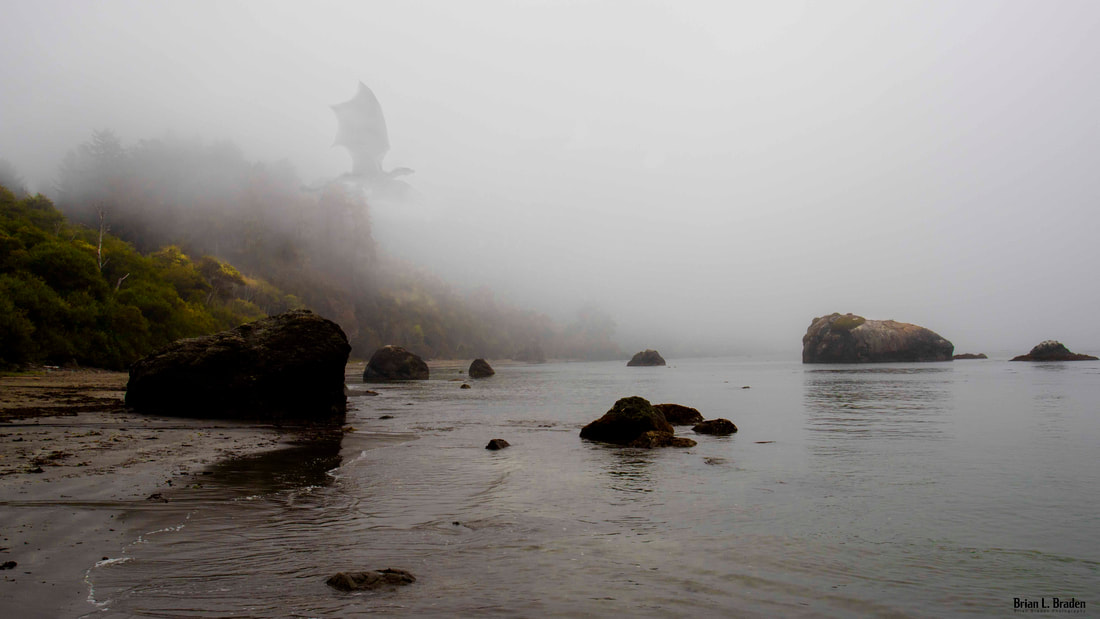

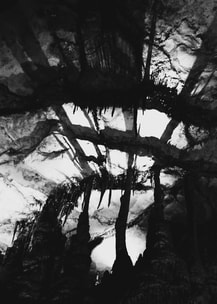
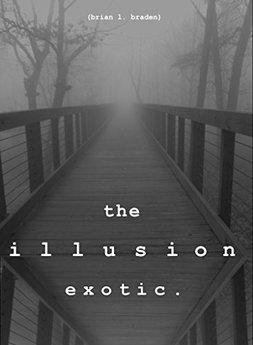
 RSS Feed
RSS Feed